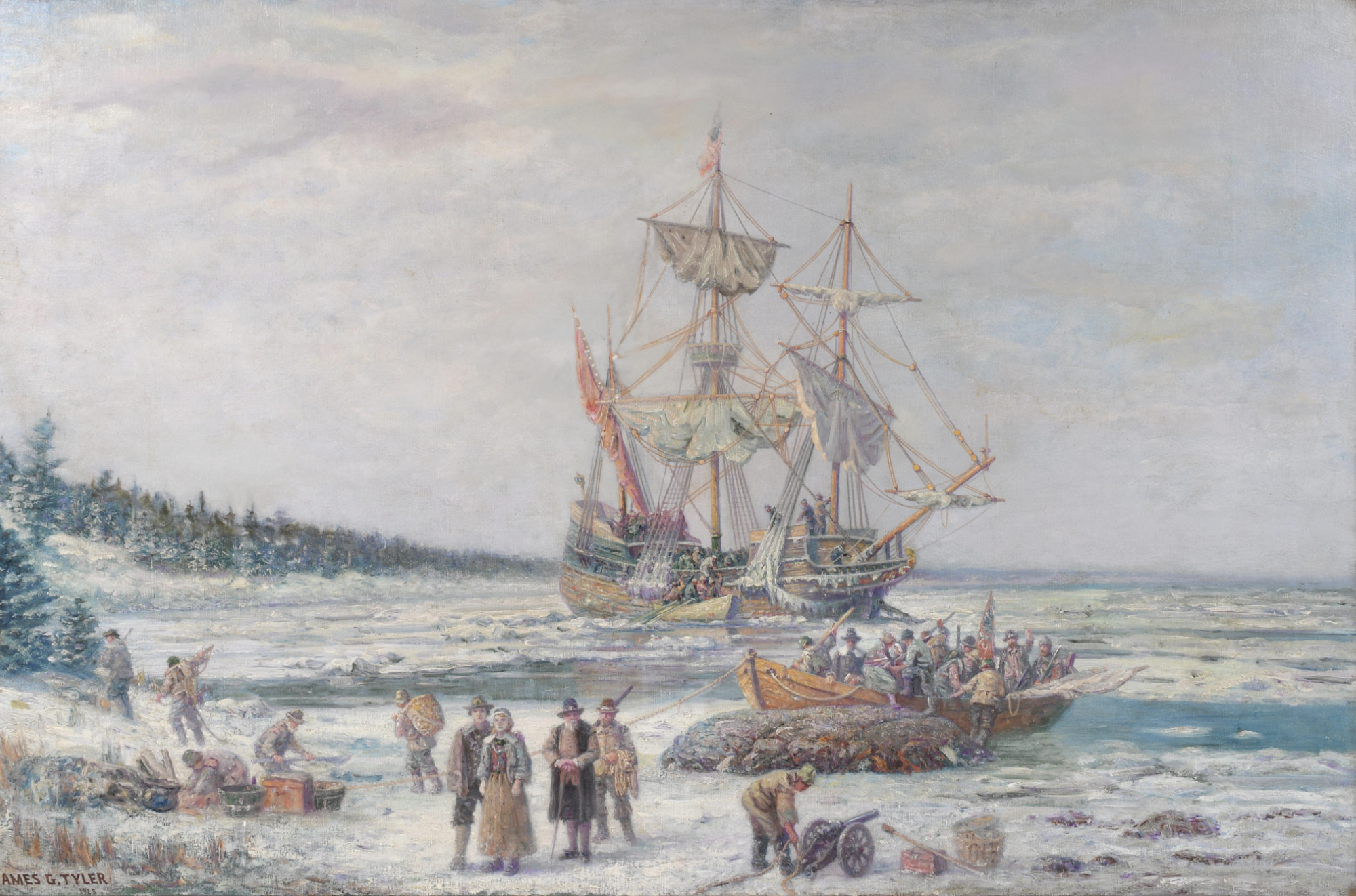The Landing of the Mayflower
The Landing of the Mayflower
Artist: James Gale Tyler

Biography of James Gale Tyler ( 1855 - 1931, American )
James G. Tyler was one of the most renowned maritime painters and illustrators of his era, celebrated for his evocative depictions of nautical life. Born in 1855 in Oswego, New York, Tyler developed an early fascination with the sea and its vessels. At the age of 15, he moved to New York City, where he briefly studied under the esteemed marine artist A. Cary Smith. This brief tutelage marked the extent of Tyler’s formal art education, but his innate talent and passion for maritime subjects propelled him to prominence.
Tyler’s art captured the full spectrum of maritime life. From old sloops and majestic clipper ships to dynamic coastal scenes and seascapes, no aspect of the sea escaped his brush. His works not only showcased the grandeur of the vessels but also the rugged charm of seafarers and the ever-changing moods of the ocean.
A key highlight of Tyler’s career was his annual pilgrimage to Newport, Rhode Island, from 1900 to 1930 to document the America’s Cup Race. These vibrant paintings, some commissioned and others exhibited widely, garnered critical acclaim and solidified his reputation as a master of maritime art.
In addition to his success as a painter, Tyler was a prolific writer and illustrator, contributing regularly to major publications of the time, including Harper’s, Century, and Literary Digest. His ability to capture the romance and power of the sea in both words and images made him a sought-after artist for both private and commercial commissions.
Tyler’s artistic style was marked by a vivid and poetic approach, emphasizing mood and impression over strict realism. This stylistic nuance is evident in works like Freshening Breeze (date unknown, Kennedy Galleries), which critics have likened to the expressive and atmospheric qualities found in the paintings of Albert Ryder.
Throughout his life, Tyler balanced his passion for maritime art with a keen sense of professionalism, earning widespread respect in the art world. He spent much of his life in Greenwich, Connecticut, before relocating to Pelham, New York, in 1931, where he lived until his passing. Tyler’s legacy endures through his timeless depictions of the sea, which continue to inspire and captivate audiences.
